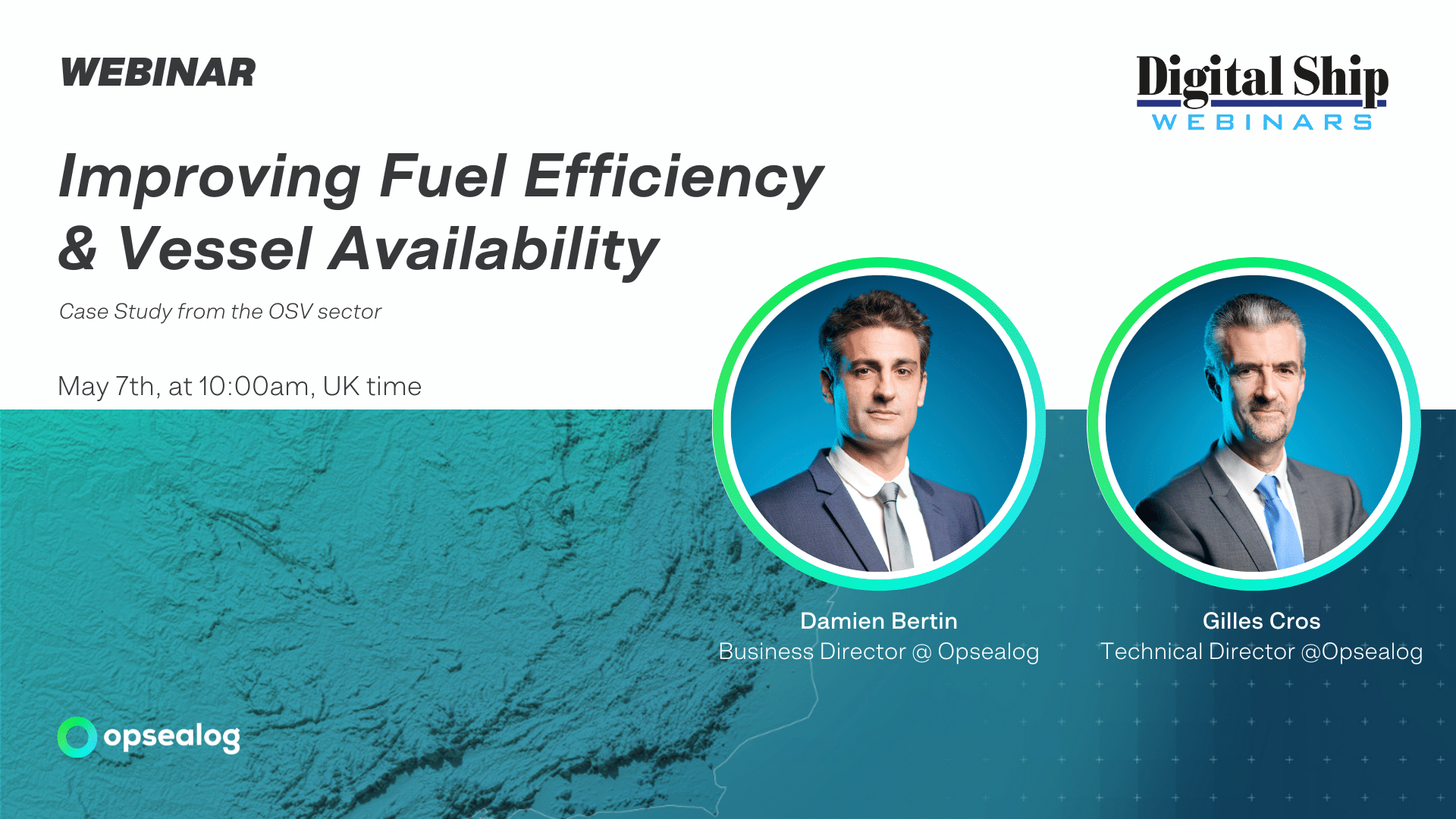During a webinar hosted by The Digital Ship, on May 7th, 2024, Damien BERTIN, Business Director at Opsealog and Gilles CROS, technical director at Opsealog presented on the topic of fuel efficiency and Vessel Availability in the Offshore Supply Vessel industry.
In this Webinar you will learn more about:
The Offshore Service Vessel (OSV) sector is seeing higher pressure to improve fuel efficiency and vessel availability than other shipping sectors. However, other shipping sectors may have something to learn from the OSV sector’s experience.
In this webinar, Damien Bertin and Gilles Cros, Technical, will tell the story of how the market in the OSV sector is evolving, rewarding operators of more fuel-efficient vessels. It also rewards operators of vessels with lower downtime levels and vessels with a longer lifetime.
This is leading to investments in digital tools to improve fuel efficiency and an acceleration in the uptake of digital technologies in the sector. It also leads to attention being paid to data quality and cybersecurity.
About the Case Study:
This webinar will present a case study of how an operator of 20 Offshore Support Vessels (OSVs) achieved concrete improvements in vessel performance aided by digital technology. The case study will not name the operator but will present their real data.
The case study will be useful for people improving vessel performance in all kinds of vessels. While the final analysis and the recommendations were simple to work with and may look simple, the work to generate them was complicated. Success requires having a clear plan of what you expect from digital tools and discussing what this means.
Learn how to: It’s important to clearly understand what technology you want to build in-house and what you want to purchase. There are advantages and disadvantages to both.
Watch the full webinar here:
About the speakers:
- Damien Bertin, Business Director·Opsealog
After an MBA in Maritime Management and having spent 15 years working for the Oil & Gas industry, Damien joined Opsealog to become their Business Director and manage the Business Development and Account Management teams.
- Gilles Cros, Technical Director·Opsealog
With over 20 years of IT experience, Gilles is passionate about the use of technology in decision-making services. He evolved from Business Intelligence to Big Data in multiple sectors, including manufacturing, banking, real estate, and particularly, the maritime industry.
Also watch: Improving Vessel Operational Efficiency with Data Analytics

